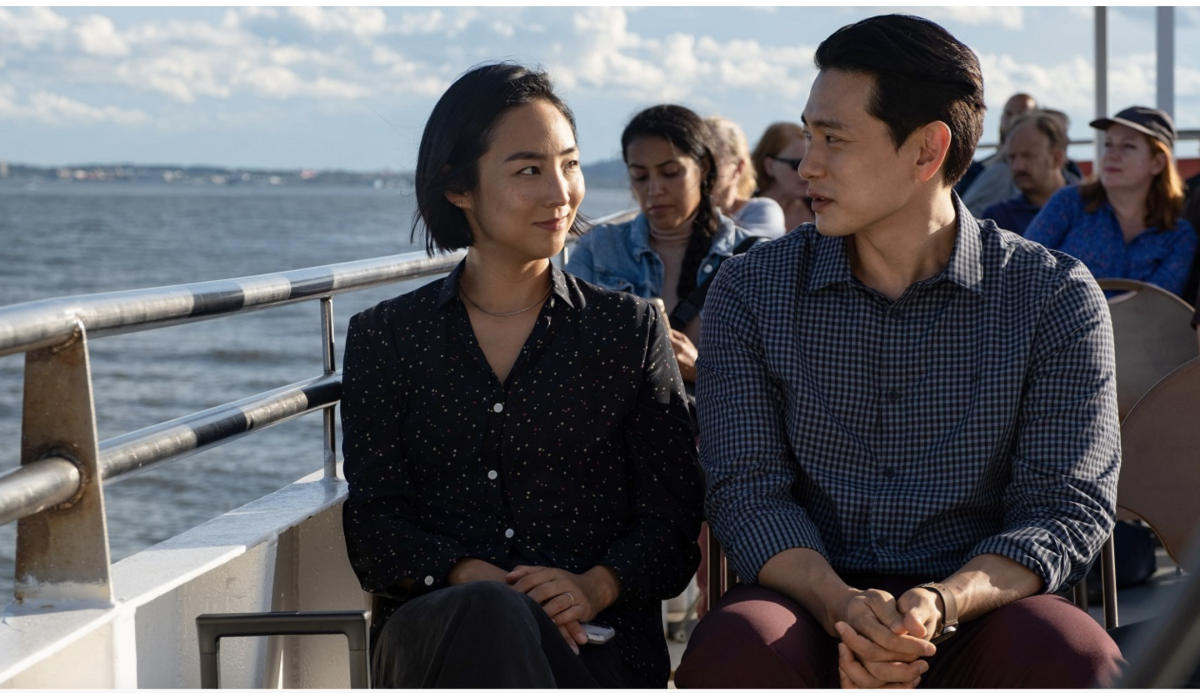
Past Lives is a gentle film with universal themes of what might have been. Photo: Supplied.
There’s a Korean word, In-yeon, which has its roots in Buddhism and refers to providence or fate or reincarnation.
If two people are married, it is said they have 8000 layers of In-yeon between them over past, present and future lives. This concept is at the heart of Celine Song’s directorial debut, Past Lives.
The film begins with an unknown couple looking at Nora, Hae Sung and Arthur sitting at a bar in New York. The couple are trying to guess the relationship between the three.
Head back some two and a half decades and we see Hae Sung and Nora, whose name used to be Na Young, when they were 12-year-old friends growing up in Seoul.
Na Young’s parents, a director and an artist, have decided to emigrate to Canada. The children dated briefly before Na Young left and Hae Sung never really got over it.
Fast forward some 12 years and Na Young, now Nora, is a playwright who has just moved from Canada to New York. Hae Sung has been serving in the military but keeps thinking of his childhood friend. He even finds her father’s Facebook page and leaves a message on it for her.
She eventually finds it and they start calling and FaceTiming one another.
Clearly, there’s unfinished business between them. Nora is conflicted by feelings she thought were long gone and although Hae Sung remains guarded, there’s no doubt that even after 12 years, his feelings for her remain strong.
At this point, Nora says maybe they should not talk again for a while, not long, but perhaps something of a cooling-off period.
That lasts another 12 years. Nora gets married, Hae Sung has had a girlfriend, but clearly, something of the In-yeon is still there and he books a flight to New York.
They spend several days together discussing what would have happened if they had both remained in Korea.
Would they have had those 8000 layers of love between them or not? These are difficult and gentle discussions and Celine Song’s writing is exquisite.
In discussing the film, Song referred to her experiences with her husband, the Jewish-American writer Justin Kuritzkes, and a childhood sweetheart visiting from Seoul. She recalled speaking to the former in English, the latter in Korean, and two men could only communicate through her.
“In that moment, it felt like something special was passing through me,” Song recalled to A-Frame magazine. “It was a sense of, ‘There is something really amazing about this that says something about what it’s like to be a person, and also a person like me.'”
She shared the story with friends over the coming months, “Without fail, every time I would tell the story to a friend, we would have really a great conversation that was very deep and very rooted in their history and personhood.”
This is where the film’s magic lies. It’s genuinely transcendental in how it deals with matters of the heart.
The “what ifs” of our youth as they relate to first love are universal themes and the film’s delicate narrative will resonate widely.
The storytelling is ably abetted by the three main cast members, Greta Lee, Teo Yoo and a beautifully understated performance from John Magaro as Nora’s somewhat beleaguered husband.
Past Lives conveys how, across time and space, people never lose that unquantifiable something that makes us all too real and vulnerable – a thing from which we can never really escape, and shouldn’t. It’s an outstanding film. Four out of five stars.
Marcus Kelson is a Canberra writer and critic.
Past Lives is screening at the Dendy, Palace Electric and Hoyts Woden.














